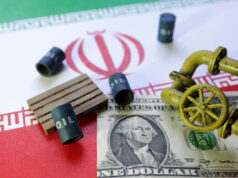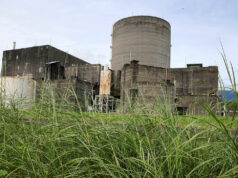House bill seeks to give PCC more powers
A LEGISLATOR has filed a bill seeking to amend Republic Act 10667 or The Philippine Competition Act to enhance the competition regulator’s powers.
Marikina Representative Stella Luz A. Quimbo, who is also a former commissioner of the Philippine Competition Commission (PCC), filed House Bill 5906 on Dec. 19, with amendments designed to allow the PCC to focus its resources on competition enforcement.
The bill seeks to enhance PCC’s enforcement powers in the area of investigating cartels, bid rigging, and market foreclosure, as well as its power to impose fines, penalties and remedies.
“Having worked with the PCC for almost three years, experiencing firsthand the difficulties of going after cartels, I believe that amendments are needed to reduce staff turnover while attracting the best lawyers and economists, to clarify certain powers such as the power to conduct inspections for purposes of collecting evidence, to increase penalties to deter firms from engaging in anti-competitive behavior, and to revise certain remedies to facilitate the detection and resolution of competition cases,” Ms. Quimbo told BusinessWorld in a text message Thursday.
The measure also proposes the establishment of a national competition policy (NCP) which will ensure that competition considerations are included in the formulation of government policy.
“A national competition policy (NCP) is important so that government as a whole recognizes that its own policies and regulations could in fact be the reason or source of anti-competitive behavior. Hence, amendments are needed to direct all government agencies to review their policies and regulations for possible anti-competitive effects, as well as to instill a level playing field between private businesses and government-owned and controlled corporations,” Ms. Quimbo said.
The bill also proposes that the PCC be mandated to review fiscal incentives for anti-competitive effects.
“While incentives can be used to promote development goals, they can also give undue competitive advantage to certain entities and distort competition. The PCC’s expertise in competition policy make it the most equipped to help the government avoid redundant incentives which are not only wasteful, but could stunt the growth of the economy,” Ms. Quimbo said in the bill’s explanatory note.
The measure also proposes a shift to a voluntary merger review regime “to reduce the cost of doing business and allow PCC to re-deploy its staff to the more important task of cartel enforcement.”
“With more effective cartel enforcement, mandatory notification becomes unnecessary. Merging parties will want to protect themselves against the risk of hefty fines by voluntarily submitting themselves to prior clearance from the PCC. This is the approach taken by Singapore, whose competition authority is considered world class,” Ms. Quimbo said.
The PCC is an independent, quasi-judicial body formed in 2016.
House Bill 5906 is awaiting action at the House Committee on Economic Affairs after its filing on Jan. 20. — Genshen L. Espedido



